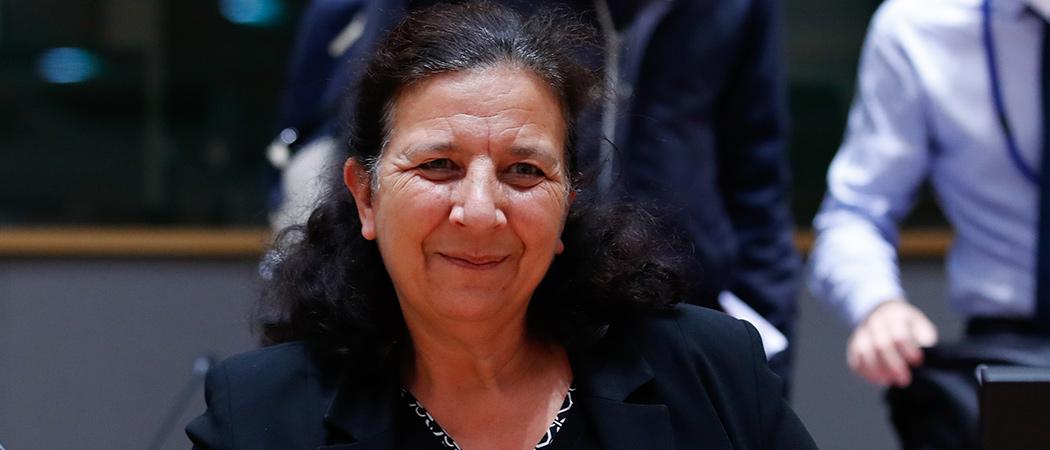Research can’t be ‘dissociated’ from politics, says Frédérique Vidal. But a senior French scientist says keeping the UK and Switzerland out ‘punishes all of us’

Frédérique Vidal, French Research Minister. Photo: European Union
Political roadblocks must be shifted before Switzerland and the UK can associate to Horizon Europe, French research minister Frédérique Vidal said after senior researchers from across the EU issued a call for the two countries to be included in the programme.
At a Science|Business conference 9 February, Vidal upheld the EU position that long-running political disputes – with Switzerland over trade, and with the UK over Brexit – must be resolved before either can formally join the €95.5 billion research and innovation programme. On the Swiss, Vidal said, “the question of Switzerland’s association to the Horizon Europe programme should not be dissociated from the global dimension of the EU-Switzerland relationship.”
Her comments came less than 24 hours after a campaign began, led by a group of six research institutions including the UK’s Royal Society and the Swiss federal research university board, urging inclusion of researchers from the two countries. The initiative, called ‘Stick to Science’, garnered support from more than 70 research institutions and 12 Nobel laureates.
But the juxtaposition of events dramatised splits within the European research community on the question of Swiss and UK participation. The day before Vidal’s comments, Antoine Petit, chair and chief executive of the French National Centre for Scientific Research (CNRS), said at the same Science|Business conference that the EU was hurting itself by excluding the neighbouring countries. “It’s a punishment for all of us, it’s a punishment for Europe,” said Petit. “If I dare, I could say that it’s a sadomasochistic decision.”
(Editor’s note: The ‘Stick to Science’ campaign was one of the sponsors of the Science|Business conference.)
The European Commission suspended talks with Switzerland after the country pulled out of a broader long-term political agreement to reconfigure bilateral relations.
In the case of the UK, there is an agreement that it can associate, but the Commission has said it will not give access until the dispute over the Northern Ireland protocol and other trade-related issues are resolved.
“The association of a third country requires mutual trust between the parties and, of course, we expect the UK to demonstrate its willingness to cooperate on other ongoing discussions,” Vidal said.
Her intervention matters, because France holds the rotating presidency of the EU Council until June. If the UK is barred until then, the UK government has said it will go it alone, under a ‘Plan B’. The French presidency is organising a conference in March where it wants to agree a declaration laying out the EU’s principles and values for international R&D cooperation. “We will also want to enforce the question of reciprocity,” Vidal said.
If the UK and Switzerland do join, they would add more than €15 billion to the €95 billion Horizon Europe budget.
Other priorities
Vidal also gave an update on other research-related matters France wants to make progress on as head of the EU Council.
She expects EU research ministers will soon vote on Council conclusions aimed at improving transnational cooperation between universities, including the idea to offer joint European degrees, pushing forward the Commission’s agenda to improve European university alliances.
Last month, the Commission called on member states to start talks on how to implement a new European degree. The move, the Commission says, would reduce the administrative burden of setting up joint university programmes. But the proposal was questioned by university associations which warned it is unlikely member states will give up national competencies and let Brussels set rules for awarding degrees.
Vidal said the joint degrees will have a European added value, but they will remain national. “Degrees will of course remain national, but the added value of the joint programmes will be highlighted,” she said.
The university strategy also includes a proposal to expand the pilot programme for European Universities, from the current 41 alliances, to 60 alliances involving more than 500 universities by mid-2024. To achieve that Vidal said member states will have to debate how they can exploit existing funding sources at EU and national levels.
The French presidency will put forward Council conclusions on the strategy on which member states will vote on in the coming weeks. “This conclusion will be presented to the Council regarding the degrees and the first question is what can we already achieve with today’s instruments and tools,” said Vidal.
Vidal also said the establishment of “an effective European innovation area” is one of the main political priorities on France’s agenda for its presidency of the Council of the EU.
The EU launched the European Innovation Council (EIC) to help start-ups across the bloc scale up faster. According to Vidal, an innovation area would ensure that the EIC is synchronised with similar national schemes. “The EIC will only bear fruit if it is linked to national European mechanisms that allow the most innovative companies to scale up,” she said.





 A unique international forum for public research organisations and companies to connect their external engagement with strategic interests around their R&D system.
A unique international forum for public research organisations and companies to connect their external engagement with strategic interests around their R&D system.